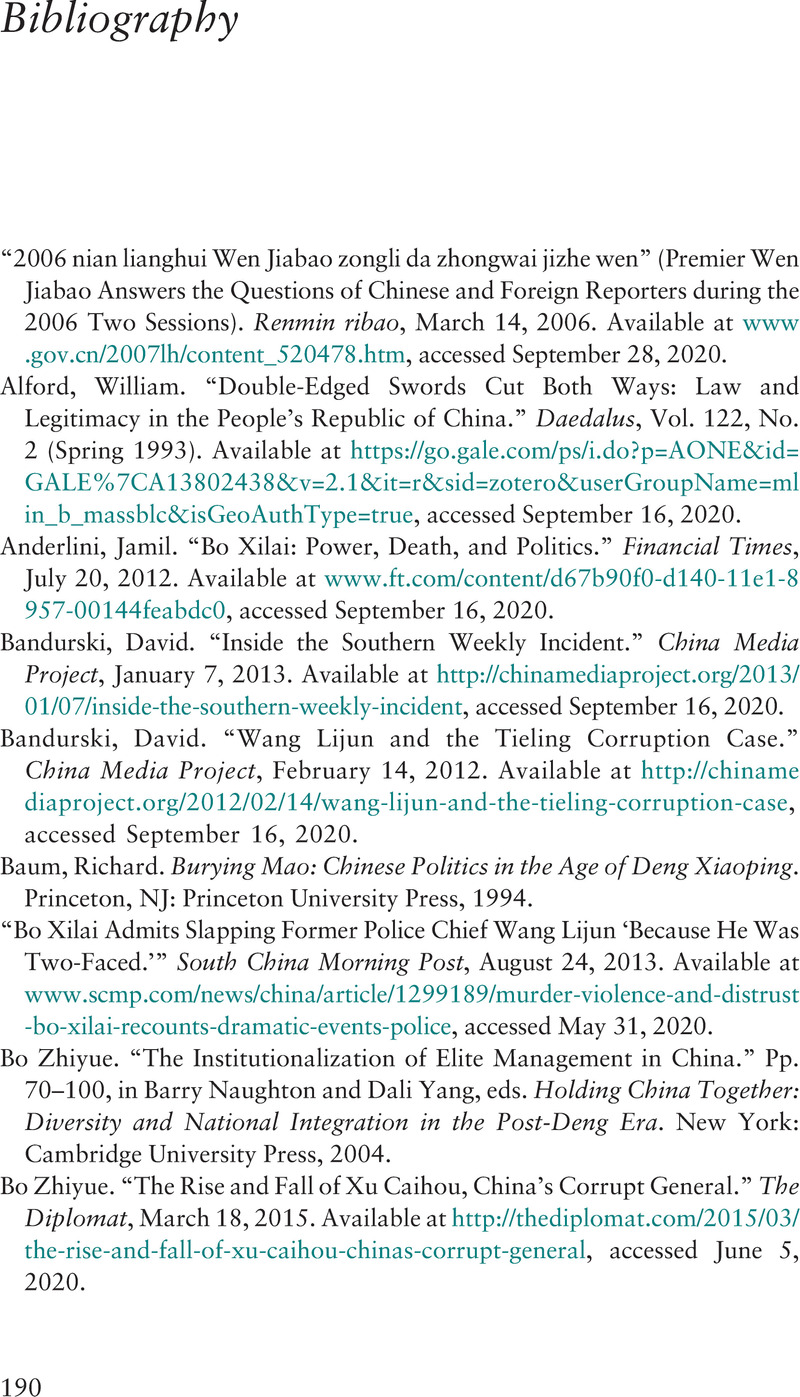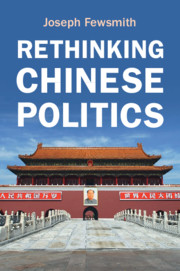Book contents
- Rethinking Chinese Politics
- Rethinking Chinese Politics
- Copyright page
- Dedication
- Contents
- Tables
- Figures
- Acknowledgments
- Abbreviations
- Introduction
- 1 The Dengist Structure of Power
- 2 Succession and the Art of Consolidating Power
- 3 Hu Jintao and the Limits of Institutionalization
- 4 The Pathologies of Reform Leninism
- 5 Xi Jinping’s Centralization of Power
- 6 The Nineteenth Party Congress and Reinvigorating Leninism
- Conclusion
- Bibliography
- Index
- References
Bibliography
Published online by Cambridge University Press: 10 June 2021
- Rethinking Chinese Politics
- Rethinking Chinese Politics
- Copyright page
- Dedication
- Contents
- Tables
- Figures
- Acknowledgments
- Abbreviations
- Introduction
- 1 The Dengist Structure of Power
- 2 Succession and the Art of Consolidating Power
- 3 Hu Jintao and the Limits of Institutionalization
- 4 The Pathologies of Reform Leninism
- 5 Xi Jinping’s Centralization of Power
- 6 The Nineteenth Party Congress and Reinvigorating Leninism
- Conclusion
- Bibliography
- Index
- References
Summary

- Type
- Chapter
- Information
- Rethinking Chinese Politics , pp. 190 - 205Publisher: Cambridge University PressPrint publication year: 2021



